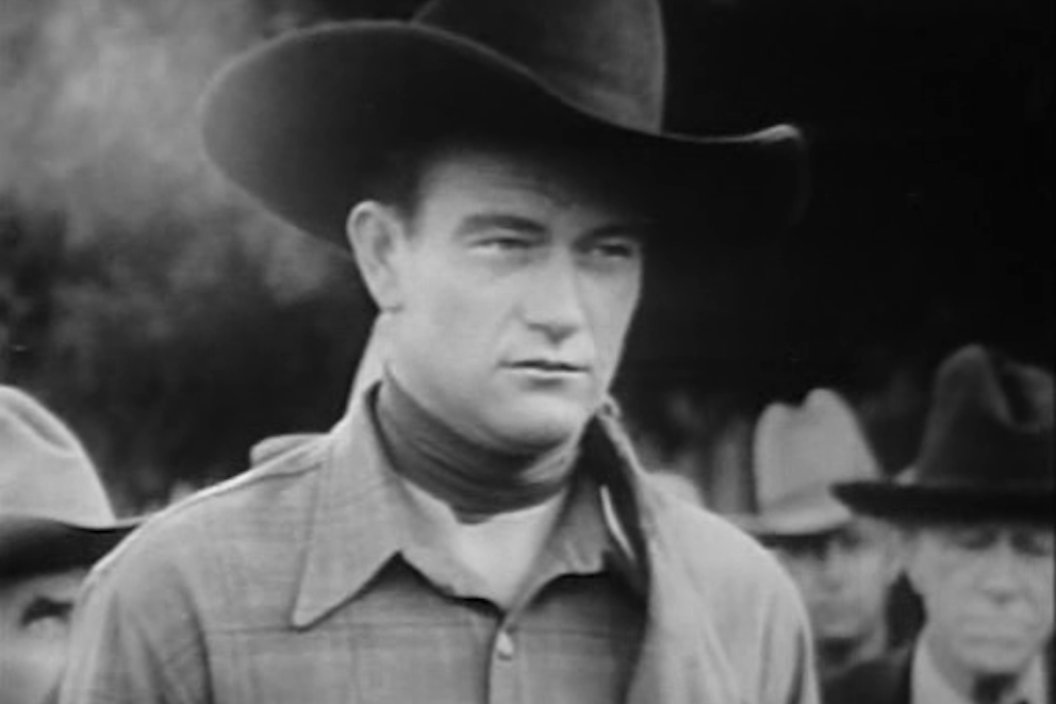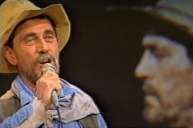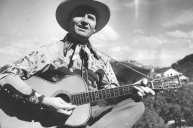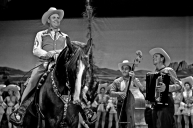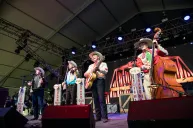Before becoming Hollywood's archetypical American cowboy, John Wayne filled a few roles in B-Western films that hardly line up with the image cultivated by such John Ford-directed films as Stagecoach and The Searchers.
In the 1930s, Wayne appeared in singing cowboy films, beginning with 1933's Riders of Destiny.
As Singin' Sandy Saunders, 26-year-old Wayne followed the father of the singing cowboys, Ken Maynard, while preceding such musical movie stars as country music greats Gene Autry, Roy Rogers and Tex Ritter.
It's the first of 16 Lone Star Westerns Wayne made for Monogram Pictures between 1933-1935. It's also the first pairings of Wayne with director Robert N. Bradbury and character actor George "Gabby" Hayes. Other on-screen talents include stunt rider and rodeo talent Yakima Canutt.
Singin' Sandy had a darker image than most of the kid-friendly cowboy stars that followed, chanting about "streets soon running with blood" and "you'll be drinking your drinks with the dead" as he headed toward a showdown.
Read More: Festus from 'Gunsmoke' Was a Singing Cowboy Star of Sons of the Pioneers
Also, don't expect to hear Wayne's singing voice. Instead, that's an an overdub of Bill Bradbury, the director's son and the brother of another Western movie star, Bob Steele. (Though some online credit Smith Ballew.)
Two years later, Wayne played another singing cowboy character, John Middleton (also billed as John Allen) in Republic Pictures' Lawless Range. A former real-life Texas cowboy named Glenn Strange gets credit for singing Wayne's parts. Strange would go from a small role in an early Western to the man under the Frankenstein's Monster suit for Universal Pictures.
Wayne also has dubbed-over "singing" scenes in B-movies Man From Utah (1934) and Westward Ho (1935), with either Bradbury or co-star Jack Kirk handling vocal duties, depending on the source.
As Wayne became a motion picture icon, he started singing in films. This can be heard everywhere from a duet with comedy legend Oliver Hardy in The Fighting Kentuckian (1949) to a performance of "Titwillow" in late life box office smash The Shootist (1976).
Now Watch: Meet Clint Eastwood's 8 Children
